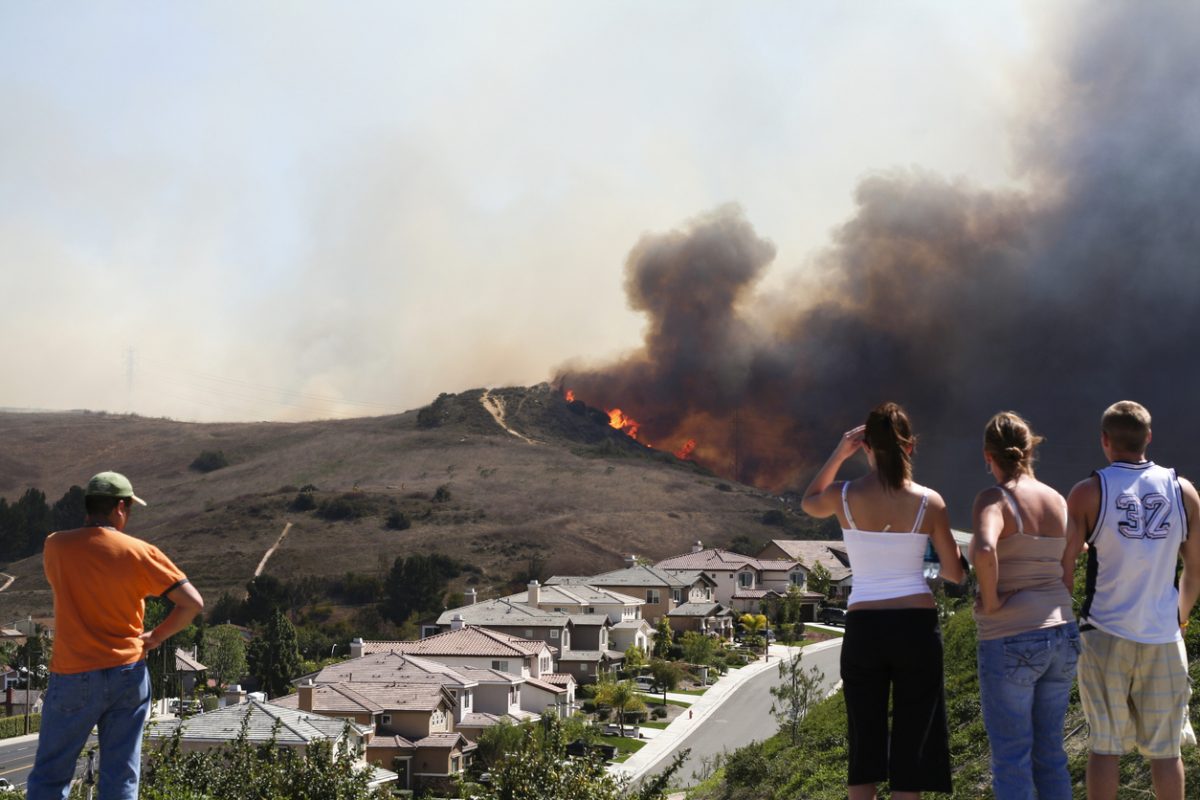
The Course of Eating Disorders During COVID-19
Coronavirus disease 2019 (COVID-19) has affected the psychological well-being of many. Research1 from Asia has reported a higher prevalence of posttraumatic stress disorder and problems with anxiety and depression within the general population. Some patients with eating disorders already have these coexisting diagnoses. Others present with selected signs and symptoms from anxiety, trauma, and depressive disorders. These features contribute to the overall psychopathology and manifestation of the eating disorder. Some patients may have difficulties with emotional dysregulation. The current fear and anxiety generated by COVID-19 may precipitate impulsive maladaptive behaviors such as binge eating and deliberate self-harm.
This vulnerable patient group may decompensate because of the psychosocial repercussions from this current pandemic. This decompensation may be exacerbated by the restrictions in specialist services including the closure of day hospitals and outpatient facilities.1 Telepsychiatry has been used to effectively reach out to patients2; however, this encourages self-efficacy and self-monitoring, which these patients may find challenging. Fernandez-Aranda et al1 reported a pilot study of 32 patients with a range of eating disorders. They surveyed the impact of the first 2 weeks of confinement from COVID-19. Almost 38% reported deterioration in their eating disorder symptoms and 56.2% reported additional anxiety symptoms.1
The government policy of social distancing contributes to social isolation and loneliness. The additional loss of control and disruption to routine may cause further difficulty. Many with eating disorders have impoverished relationships as a result of various interpersonal deficits. Contributing factors can include low self-esteem, avoidant personality traits, and alexithymia, which limit social connectivity and assertive skills. Patients are self-conscious and distressed by their impaired social skills, which may evoke self-blame and body image disparagement, thereby feeding into their eating disorder. The eating disorder can become a companion for some, and the maladaptive behaviors provide a temporary form of relief from internalized distress.
There is commonly existing conflict in familial relationships that may be related to the disrupted eating patterns. The current enforced confinement may further strain the family dynamic. The lack of meaningful activity during the day is likely to increase the individual’s obsessional preoccupation with food, body image, and weight. Individuals are likely to spend more time on social media, which may reinforce their fixation with the "ideal" body image. There is also greater opportunity to visit websites that promote eating disorders and encourage disruptive behaviors. At the time of this writing, the UK government currently restricts outdoor exercise and gyms have been closed. However, there remains a spotlight on delivering exercise regimens through digital platforms, which could be a factor that precipitates the onset of an eating disorder or perpetuates symptoms in those with existing illness.
Much attention has been directed to food and restricting visits to the supermarket. During the initial stages of the crisis, there was panic buying with supply shortages, which prompted many to bulk buy essential food items. Having large quantities of food in the home as well as the associated lack of structured activity may have triggered episodes of binge eating and compensatory purging behaviors. Being aware that others are struggling to procure food may add to the guilt and shame following a binge-eating episode.
Weissman et al3 refer to the concept of food "insecurity" in which there is limited access to food as a result of current economic stressors. They3 add that several studies have demonstrated an association between food insecurity and binge eating. Patients with anorexia nervosa (AN) present with cognitive rigidity and only allow a narrowed variety and repertoire of foods in their strict diet. A shortage of their desirable food products may have caused further weight loss and added to physical health risks.4
Theoretically, patients who are malnourished are expected to have worse outcomes, but some authors imply that AN may confer some resilience to viral illness. Touyz et al4 refer to a publication from 19785 in which the authors investigated the immunity of patients with AN in comparison to healthy controls. The authors5 noted that patients with AN rarely developed the common cold or influenza. Both arms in the study received an influenza vaccination, and the subsequent antibody response was monitored. The authors5 suggested a potential link between estrogen and the inflammatory reactivity in patients.
We have concerns about the potential risk of developing an eating disorder in those who contract COVID-19. A case series 6 reported the onset of AN following viral illness in 4 patients. The authors6 speculate an immunologic and neurobiologic etiology for AN in these patients. There is more recent evidence of an association with immune functioning and eating disorders, indicating that infections may affect the central nervous system through inflammatory processes.7
Breithaupt et al7 studied a population-based cohort of 525,643 adolescent girls. They found that prior childhood infection was associated with an increased risk of receiving a later ICD-8 or ICD-10 diagnosis of AN, bulimia nervosa (BN), or eating disorder not otherwise specified (EDNOS).7 The history of hospitalization for infection when compared to those not hospitalized was associated with a 22% increase in AN, 35% increase in BN, and 39% increase in EDNOS diagnoses. The risk was higher 3 months after being hospitalized for an infection. Their results support an immunologic hypothesis in the etiology of these eating disorders.7 There is also research8 that reports the onset of AN and food refusal after an influenza or streptococcal infection. It has been suggested that behavioral changes such as loss of appetite and decreased food intake can be triggered by an inflammatory mechanism and increased levels of proinflammatory cytokines tumor necrosis factor interleukins 1 and 6.7 The same cytokines have been implicated as part of the cytokine storm in COVID-19 infection,9 with proposed novel treatments including the IL-6 inhibitor tocilizumab.
We predict COVID-19 will have a significant impact on those with existing eating disorders. Current biopsychosocial factors can also contribute to the development of new cases. Collaborative work between primary care and specialist psychiatric services is essential with regard to the identification and management of both the psychiatric and physical health risks. Box 1 provides eating disorder resources for both clinicians and patients. Further research is warranted to investigate the association between infection and subsequent development of an eating disorder.
Box 1. Eating Disorder Online Resources for Clinicians and Patients
Organizations in the United States
- National Eating Disorders Association:
https://www.nationaleatingdisorders.org/about-us - American Psychological Association:
https://www.apa.org/eating-disorders/
Organizations in the United Kingdom
- Royal College of Psychiatrists: https://www.rcpsych.ac.uk/mental-health/treatments-and-wellbeing/eating-disorders-and-covid-19
- Beat Eating Disorders: https://www.beateatingdisorders.org.uk/
- Mind for Better Mental Health: https://www.mind.org.uk/
information-support/types-of-mental-health-problems/
eating-problems/about-eating-problems/ - Anorexia and Bulimia Care: anorexiabulimiacare.org.uk
Received: May 4, 2020.
Published online: June 18, 2020.
Potential conflicts of interest: None.
Funding/support: None.
REFERENCES
1. Fernסndez-Aranda F, Casas M, Claes L, et al. COVID-19 and implications for eating disorders. Eur Eat Disord Rev. 2020;28(3):239-245. PubMed CrossRef
2. Lim CG, Ong SH, Chin CH, et al. Child and adolescent psychiatry services in Singapore. Child Adolesc Psychiatry Ment Health. 2015;9(1):7. PubMed CrossRef
3. Weissman RS, Bauer S, Thomas JJ. Access to evidence-based care for eating disorders during the COVID-19 crisis. Int J Eat Disord. 2020;53(5):369-376. PubMed CrossRef
4. Touyz S, Lacey H, Hay P. Eating disorders in the time of COVID-19. J Eat Disord. 2020;8(1):19. PubMed CrossRef
5. Armstrong-Esther CA, Lacey JH, Crisp AH, et al. An investigation of the immune response of patients suffering from anorexia nervosa. Postgrad Med J. 1978;54(632):395-399. PubMed CrossRef
6. Park RJ, Lawrie SM, Freeman CP. Post-viral onset of anorexia nervosa. Br J Psychiatry. 1995;166(3):386-389. PubMed CrossRef
7. Breithaupt L, Köhler-Forsberg O, Larsen JT, et al. Association of exposure to infections in childhood with risk of eating disorders in adolescent girls. JAMA Psychiatry. 2019;76(8):800-809. PubMed CrossRef
8. Toufexis MD, Hommer R, Gerardi DM, et al. Disordered eating and food restrictions in children with PANDAS/PANS. J Child Adolesc Psychopharmacol. 2015;25(1):48-56. PubMed CrossRef
9. Monteleone G, Sarzi-Puttini PC, Ardizzone S. Preventing COVID-19-induced pneumonia with anticytokine therapy. Lancet Rheumatol. 2020;2(5):e255-e256. PubMed CrossRef
aWaltham Forest Mental Health Team, North East London Foundation Trust, Red Oak Lodge, London, England
*Corresponding author: Ahmed Saeed Yahya, MRCPsych, North East London NHS Foundation Trust, Waltham Forest Older Adults Mental Health Team, Red Oak Lodge, London, England E11 4HU ([email protected]).
Prim Care Companion CNS Disord 2020;22(3):20com02657
To cite: Yahya AS, Khawaja S. The course of eating disorders during COVID-19. Prim Care Companion CNS Disord. 2020;22(3):20com02657.
To share: https://doi.org/10.4088/PCC.20com02657
© Copyright 2020 Physicians Postgraduate Press, Inc.
Enjoy this premium PDF as part of your membership benefits!




